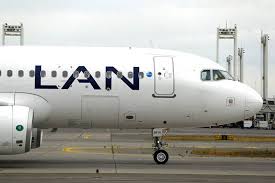Misconduct in the C-Suite: SEC Settles FCPA Case with CEO
 The SEC is setting its sights on individual prosecutions. Both the Justice Department and the SEC have reiterated the importance of prosecuting individuals. DOJ’s Yates Memorandum promises to deliver an increase in civil and criminal prosecutions.
The SEC is setting its sights on individual prosecutions. Both the Justice Department and the SEC have reiterated the importance of prosecuting individuals. DOJ’s Yates Memorandum promises to deliver an increase in civil and criminal prosecutions.
The SEC is delivering on its stated goal of increasing individual prosecutions. In a busy FCPA enforcement week, the SEC settled the SciClone Pharmaceuticals case and a separate prosecution of Ignaco Cueto Plaza (“Cueto”), the CEO of LAN Airlines S.A. Cueto agreed to a $75,000 civil penalty.
The SEC’s settlement action ensnared a CEO of a Latin American airline. Interestingly, the case did not include bribery violations but rested on violation of internal accounting controls and books and records.
The case against Cueto was fairly strong given his knowledge that LAN entered into a consulting agreement for false, non-existent services from a consultant, who provided a fake contract and false invoices for reimbursement of funds used by the consultant to negotiate a settlement with union employees.
The case underscores the importance of compliance controls around contract management, invoice review and approval, and third party payment controls. Financial misconduct within a company usually entails more than just stealing money from a company – it involves circumventing basic controls around contracting to ensure that a contract with a third party involves real services; preventing in-depth review of invoices to ensure that actual services were delivered; and flagging third-party payment issues when consultants seek complicated and unexplained payment arrange arrangements.
Cueto approved $1.15 million in improper payments to a third party consultant in Argentina in connection with LAN’s attempts to settle disputes on wages and other work conditions involving LAN’s employees.
Cueto retained a consultant who offered to help LAN negotiate with the unions to reduce claims for wage increases and enforcement of certain workplace rules. The consultant informed Cueto that he would negotiate directly with the unions and make payments to third parties to pressure the unions to settle their dispute with LAN. Cueto knew that the consultant would pass some portion of the $1.15 million to union officials. The payments were made and then passed through a company controlled by the consultant in Argentina.
The consultant eventually settled the disputes with the unions under which the unions reduced their demands for wage increases and agreed not to enforce the workplace rule for four years.
After settling the dispute, the consultant sent LAN a draft consulting contract for a total fee of $1.15 million divided into three installments. The contract falsely stated that the consultant would study existing air routes in Argentina and the regional market for the payment. Cueto knew the consultant would not perform a study.
LAN used an unrelated subsidiary company to make the improper payments to the consultant. Three payments were made to a consultant’s account in Virginia. The payments were reported incorrectly as payments to “other debtors” on the subsidiary company’s books.
 Another payment was made to the consultant through an account in Spain in the name of another company, which was owned by the consultant’s son and wife, and based on Costa Rica.
Another payment was made to the consultant through an account in Spain in the name of another company, which was owned by the consultant’s son and wife, and based on Costa Rica.
Cueto approved payment of the invoices and instructed the CFO of LAN to pay the consultant’s invoices.
The SEC’s settlement includes significant remedial actions requiring Cueto to certify compliance with LAN’s new Code of Conduct and other company policies; to attend training; to agree to an amendment to his employment agreement to ensure compliance with LAN’s Code of Conduct and his commitment to perform his duties consistent with high ethical standards.















